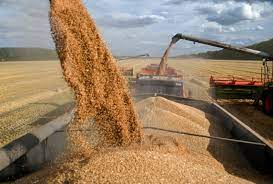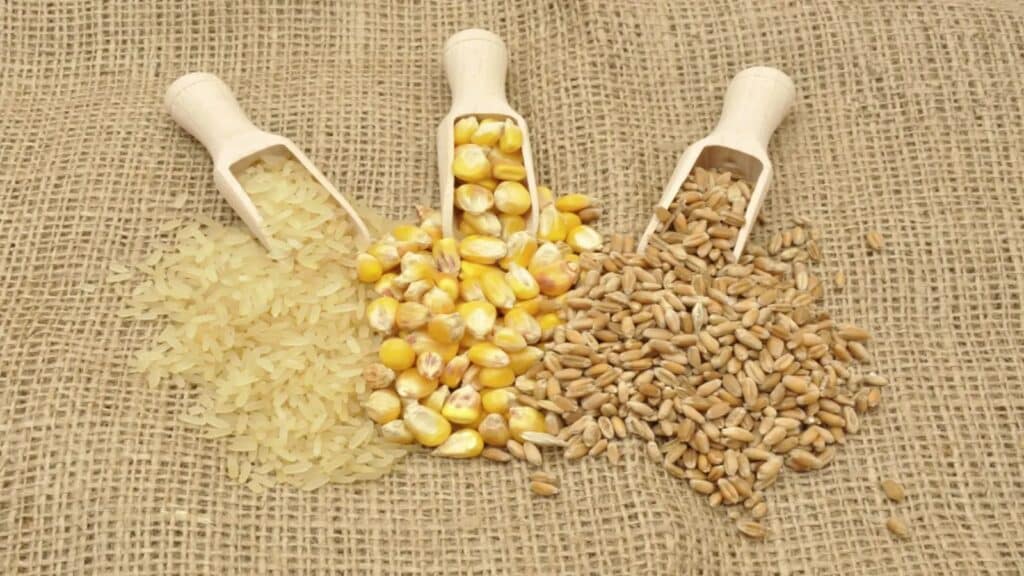Russia is trying to renege on the deal to allow Ukrainian grain out through the Black Sea ports. India has just banned exports of the common grades of rice based upon climate problems – or perhaps weather, who knows what they call it these days. That means that our speculative energies should turn to food stuffs. Or, perhaps, could turn to foods.

As we all should know it’s possible to trade futures on many foods – eggs, pork bellies, orange juice (as in Trading Places) and more. The emphasis here though is on the three great carbohydrates that really feed the planet: Wheat, corn and rice. There are very large and liquid global markets in these three. Prices can be driven by minor issues we’re unlikely to hear of – a bit of rust in this area, perhaps the monsoon’s a little later over there. But they’re also driven by these big political issues that we can see, even taste, in the general news feed.
Is food speculation even moral?
Perhaps the first question is whether it is even moral to speculate in food? Plenty of NGOs try to insist it isn’t. One answer is we’re talking money here so what do we care? The other – better – is that speculation actually reduces food price volatility. Therefore we’re doing good by playing with food prices. The classic example here is that onion prices have been more volatile since the banning of futures trading in them.
However, we can take that a stage further too. There is less speculation in rice than wheat and corn. Therefore rice prices are more volatile. As price volatility is what we actually desire as traders then perhaps that should be the market we concentrate upon, despite it being a smaller market.
People eat something else if food gets more expensive
The other piece of background economics we need is substitution. People do eat after all. So, if one thing gets more expensive then so do the others. People have bread with their curry (as in North India) instead of rice (South India) or noodles with the pork (North China) instead of rice (South). So, if rice becomes more expensive – for reasons that affect just rice alone – then the other two will as well. But less so. This is also true of wheat and or corn – substitution matters. Prices do not move in lockstep, but they do influence each other that is.

BTW, don’t get confused about the fourth great carbohydrate, potatoes. They’re so low value that there’s very little international trade. Therefore, price movements in them are near always local, not global.
Food speculation concentrates upon futures
The other thing to note is that the way to speculate here is with futures. That’s just how agricultural commodities work. And that’s a slight problem if we wish to limit risk. Futures are, by their nature, bidirectional. The loss from prices moving against a position is equal to the profit to be made from getting the position right. We are not in that world of stocks or bonds, where there is a natural limit to the downside. Losses are unlimited – at least in theory. Sure, it’s possible to have stop losses and so on. But be aware of this dual sided nature and therefore risk. A $1 move against your position loses you as much as a $1 in your favour makes. The corollary to this is that futures markets are zero sum. Any profit is a loss to someone else and vice versa. The trade is never against reality, it is against all other traders in the market.
One way around this specific problem is to use a Contracts for Difference (CFD) broker. That won’t stop the equality of the profit/loss risk but will allow position limiting.

Global futures contracts prices tend to be linked
Finally, there are varied different contracts for all of them. And they all have different delivery points, definitions and standards. But a few that could be worth exploring: Rough Rice (CBOT: ZRWOO) is an American rice one. The influence of – say – India banning exports will be on the increase in American exports to balance. It’s up 5 or 6% since the Indian announcement for example. Chicago Wheat (CBOT: ZWWOO) is down about 7% on the month as everyone thought the Russians would play nice on Black Sea exports, up about 10% in the two weeks since it appeared they might not. Corn (CBOT: ZCWOO) shows the same pattern, down over the month, well up in the last couple of weeks alone.
There are always local influences on the different global quotes. But given the global nature of the food trade we do find them mostly moving in the same direction at the same time. Plus there’s that substitution effect between them. So, global prices do tend to move under the influence of global pressures.